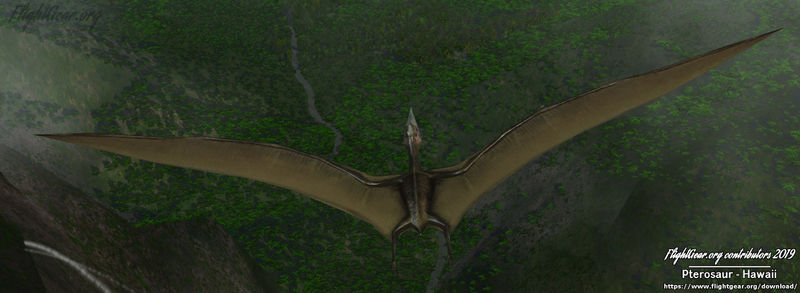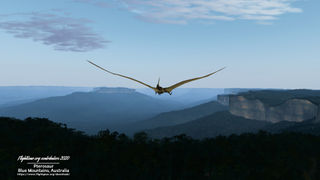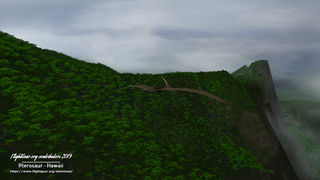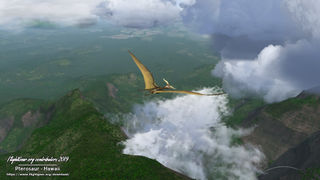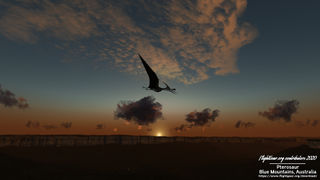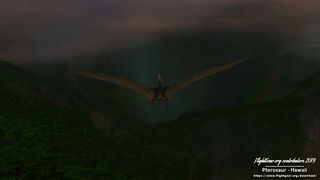Pterosaur
| This aircraft article is a stub. You can help the wiki by expanding it. |
 | |
|---|---|
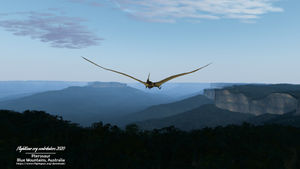 Pterosaur over Blue Mountains in Australia in Flightgear | |
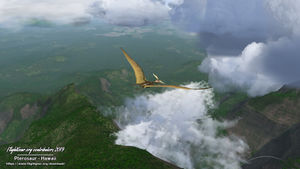 Pterosaur over Mount Waialeale on the Island of Kauai, Hawaii | |
| Type | Pre-historic creature |
| Configuration | Pterosaur, Variable-incidence wing aircraft, Variable-sweep wing aircraft |
| Propulsion | Flapping wing, Ballistic launch |
| Author(s) |
|
| FDM | JSBSim |
| --aircraft= | Pterosaur |
| Status | Not set |
| Development | |
| Website |
|
| Repository |
|
| Download |
|
| Forum |
|
| License | GPLv2+ |
| Wikipedia |
Pterosaur |
The Pterosaur in Flightgear uses a JSBSim model of flapping wings based on research papers. The Pterosaur model sports the ALS organic wingflex effect. Combined with Flightgear's terrain-driven weather modelling including thermals available with the Advanced Weather system, the Pterosaur allows you some access to the experience flying with natural (flapping) wings, perhaps as you might have wondered about in the past when there was no such simulation available.
Pterosaurs were vetebrates that lived during the Mesozoic era, from 228 to 66 Million years ago. Pterosaurians evolved membrane like wings made of skin, fine hair-like down, muscle and sinew. They were the first vertebrates to achieve powered flight, some 228 million years before humans did with assistance from technology and inspiration from those vertebrates that had come before.
Pterosaurians are not closely related to the Theropod dinosaur lineage that evolved feathers eventually giving rise to birds as is commonly misconceived, and they mostly evolved independently. They were the first of 3 solutions by vetebrates to flight with the other two being birds (Avians) and the mammalian bats (Chiropterans). Pterosaurians utilised a wing running from the ankles, up to an extended 'arm' with a very long fourth finger, as the main surface generating lift. Pterosaurs also had several other lifting surfaces. They had evolved a specialised bone called the pteroid, which is rare as bones usually get re-used for different purposes or discarded. This pteroid extended from the 'wrist' supporting a lifting surface at front of the arm (the propatagium), which extended from the body to the wrist. The pteroid bone would help control the camber of the wing and the amount of lift generated as needed. Pterosaurs also had a lifting surface between their two 'legs' (hind limbs) and tail which functioned to generate lift and allow sharper roll/pitch/yaw manouveres depending on the species, but was not used to help stabilise during flight like an aircraft tailwing.
Keyboard controls
| Key | Function |
|---|---|
| w | Retract wings for fast diving |
Gallery 2018+
See also
The Dragon is a variant that uses the same flight dynamics as the Pterosaur but with different 3d art.
The Dead Simple Human Powered Airplane v5 (DASH PA) is a vertebrate (human) powered flying vehicle available in FGAddon (April 2020)
